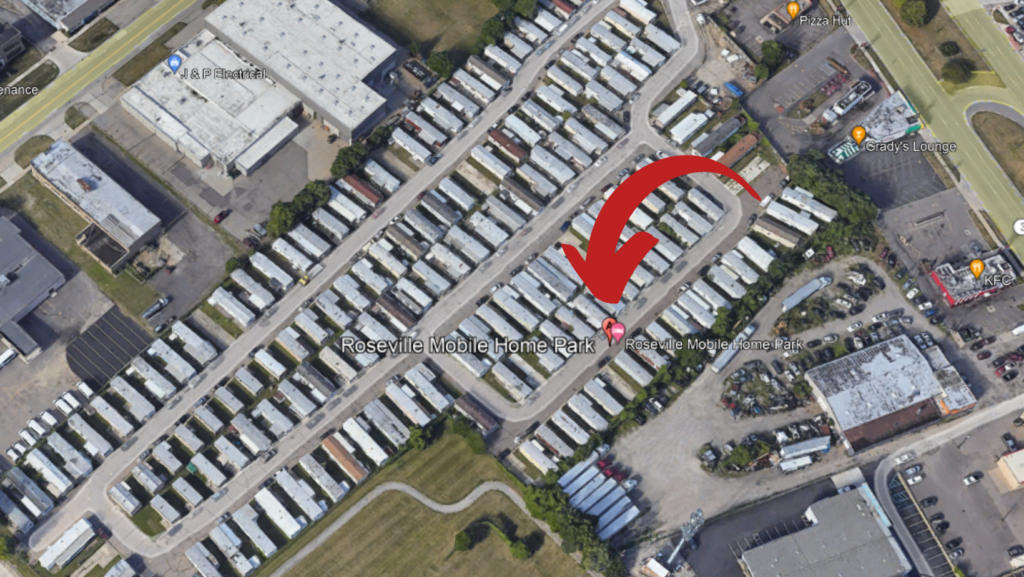Likely Advantages of Geographical Targeting in Mobile Home Park Investments
-
 Tristan Hunter - Investor Relations
Tristan Hunter - Investor Relations
Optimizing Mobile Home Park Investments Through Geographical Targeting
Geographical targeting in mobile home park investments can help streamline operations and enhance efficiency. By focusing on specific regions, operators can potentially develop in-depth local market knowledge, which is typically crucial for operational success. This strategy generally enables quicker response times, reduced operational costs, and stronger community engagement, contributing to a well-oiled management system that often benefits both the residents and the operators.

Balancing Monetization Strategies: Park-Owned Versus Tenant-Owned Homes
A key consideration in mobile home park management is deciding between park-owned and tenant-owned homes. Park-owned homes, where the mobile home park retains ownership and leases out the homes, can potentially offer higher immediate revenue but usually require continuous maintenance and management. This model demands a proactive approach to help ensure the homes are in good condition and remain appealing to potential residents.
Conversely, tenant-owned homes, where the tenants own their homes and pay lot rent, generally involve lower maintenance costs for the mobile home park owner and foster longer-term tenant commitments. Although the initial income from selling the homes might be less compared to renting them, this model can potentially lead to a more stable and predictable revenue stream from lot rents, fostering a sense of community and long-term residency.
The Likely Benefits of Scalability in Mobile Home Park Investments
Scalability is a common advantage in mobile home park investments. Larger mobile home parks, or a network of mobile home parks within a concentrated geographic area, can help achieve economies of scale in both operational and management costs. Scalability usually allows for broader capital investment, infrastructure improvements, and more amenities, which can possibly increase the property’s value and attract a higher quality of tenancy. This approach aims to enhance the living experience for residents whilst potentially boosting the overall profitability of the investment.
Download our FREE eBook on the “Top 20 Things Learned from Mobile Home Park Investing “
By Andrew Keel

The Importance of Geographic Focus and Operational Scalability
Geographic Focus: Enhancing Market Penetration
Focusing on a specific geographic region typically allows mobile home park operators to concentrate their efforts and resources, which can possibly lead to superior market penetration and operational efficiencies. This focused approach helps in building a robust local presence, which is likely essential for understanding tenant needs and market dynamics. It also helps facilitate quicker decision-making and more personalized tenant interactions, which are usually crucial for tenant satisfaction and retention.
Operational Scalability: Driving Efficiency and Growth
Operational scalability is generally crucial for expanding the mobile home park business efficiently. By managing a larger number of units within a geographically concentrated area, operators can likely spread fixed costs over a broader base, potentially reducing the per-unit cost of operations. Scalability also helps facilitate the implementation of standardized processes and systems across multiple properties, which can possibly lead to more consistent and reliable management practices.
Conclusion: Leveraging Geographical Targeting and Scalability in Mobile Home Park Investments
Investing in mobile home parks often offers unique challenges and opportunities. Operators who leverage geographical targeting and scalability can potentially enhance their operational efficiencies, improve tenant satisfaction, and maximize financial returns. These strategies are typically essential for building a successful mobile home park portfolio that can likely withstand market fluctuations and potentially deliver consistent, long-term returns. Moreover, understanding the balance between park-owned and tenant-owned homes can help further optimize the revenue model and ensure a stable, growth-oriented investment landscape.
It doesn’t have to stop here! Reach out to us below if you are interested in learning more about passive mobile home park investments and how the Keel Team, Top 50 Owner of Mobile Home Parks in the U.S., approach their mobile home park investments with strategic operational efficiencies in mind.
Learn more about mobile home park investing.
Interested in learning more about mobile home park investing? Get in touch with us today to find out more.
Disclaimer:
The information provided is for informational purposes only and should not be considered investment advice, nor a guarantee of any kind. There are no guarantees of profitability, and all investment decisions should be made based on individual research and consultation with registered financial and legal professionals. We are not registered financial or legal professionals and do not provide personalized investment recommendations.

Tristan Hunter - Investor Relations
View The Previous or Next Post
Subscribe Below 👇





